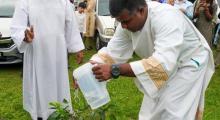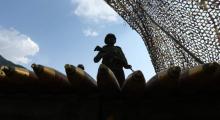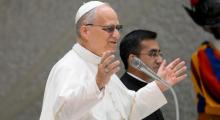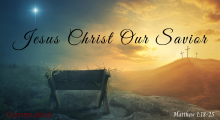Issued by the Catholic Center for Studies and Media - Jordan. Editor-in-chief Fr. Rif'at Bader - موقع أبونا abouna.org
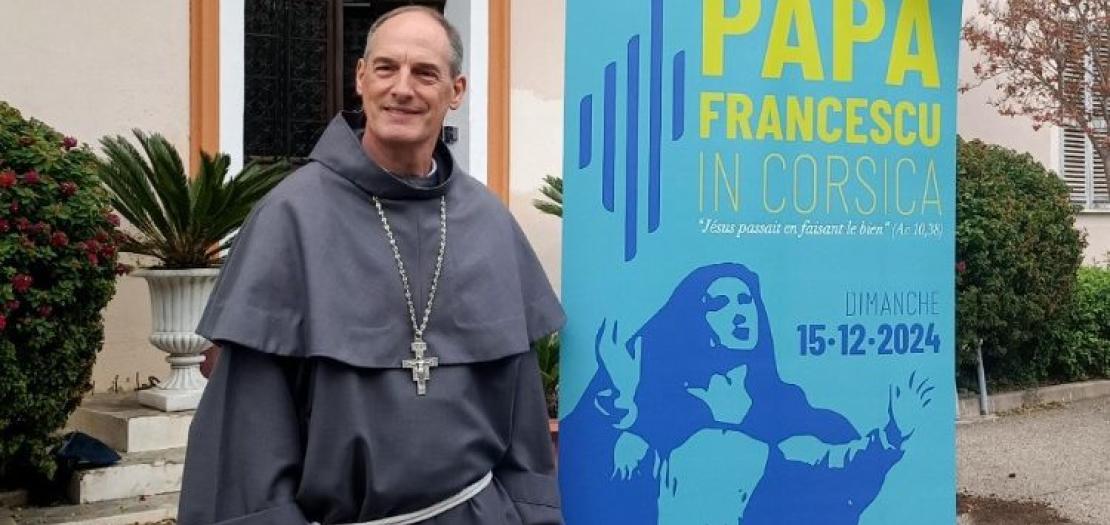
Cardinal François-Xavier Bustillo, the Bishop of Ajaccio, describes Pope Francis’ one-day visit to Corsica next December as “a beautiful Christmas present.” Speaking to Vatican News he says the Church in the island receives this special gift “not as a privilege, but as a responsibility to honor our memory and to inspire our future.” In the interview he explains the purpose of this Apostolic journey and speaks about the Church in Corsica and the Catholic devotion of its people.
What is the purpose of the Pope's visit to Corsica?
Cardinal Bustillo We have organized a congress on popular religious traditions in the Mediterranean, so there will be bishops from Sicily, Sardinia, Spain, and France. It’s a moment where we want to share among ourselves what we are, what we experience, and these popular religious traditions that exist in our countries. I also thought it was important to bring in a theological dimension. Instead of viewing some popular traditions as mere folklore, it’s about seeing them as an opportunity to evangelize through the popular traditions passed down to us by our ancestors.
How important is it that the Holy Father personally comes to celebrate these popular traditions?
Cardinal Bustillo It’s a way to encourage the mission through these methods. When we think about the mission, we sometimes think strategies, and we feel we need to study marketing, and so on. But we also have traditions that are very simple, and don’t require special marketing strategies . We just need to go out into the streets, express our devotion to the Madonna or a saint, sing, honor, walk, and simply say that we are believers. So, the mission has these two aspects. There is also a more sophisticated aspect, involving reflection and a suitable response. Then there are the popular traditions, which say, "Look, here’s what we already have." We start from here and perhaps go further with these traditions, beyond just the popular traditions that you just mentioned, which will also be the focus of this congress.
How would you describe the Corsican Church?
Cardinal Bustillo Our Church is a Church closely tied to Catholic traditions. Since it’s an island and in smaller communities, they have preserved traditions linked to a saint, a martyr, or the Madonna. So, my Church is one that has kept the traditional, spiritual, and religious dimension. What I think is important is not to remain only on a level of outward or external tradition but to see how these traditions inspire us to live fully and with passion. This is the message, the Gospel. Jesus tells us, "Go out into the streets." Jesus says, "Go two by two." He invites us to risk meeting others, and during popular gatherings, there is an encounter with others, possibly people from all walks of life—right-wing, left-wing, friends, enemies—all united by faith. I believe this is important. In my land and in my diocese, these traditions bring people together. The people expect the priest, the parish priest, or the bishop to celebrate and honor this movement, even in the streets of our towns.
Corsican Catholics are French Catholics but do they experience their Catholic faith differently from those on the mainland?
Cardinal Bustillo There is more serenity, in my opinion. My Catholics, even with the civil authorities—members of parliament, senators, mayors—do not face much difficulty in the relationship between the Church and civil authorities. So, there is a laicity. Of course, each one has their responsibilities in the city, but we live it in a serene and responsible manner, each in their place but always wanting the good of all and the welfare of our people.
We know how much Pope Francis is attached to the issues of Mediterranean countries. Corsica has almost always been represented at Mediterranean meetings. What is the island’s role in the "laboratory of peace" that is Mare Nostrum?
Cardinal Bustillo We are in a truly strategic position. We are close to Sardinia, so it’s important for us to work on our traditions so they can extend beyond our island. That’s why it’s good to talk about a "laboratory" and to be able to transmit a peaceful and serene life between civil authorities and religious authorities, connected to the people to other places.
We see that there are many wars even here in the Mediterranean, so how can we transmit a peaceful, fraternal, serene life through our traditions? For this reason, we want civil and ecclesiastical authorities to be able to dialogue. Today, we cannot be institutional enemies. There must be responsibility, a commitment for the good of our people, because if we stay among ourselves, we forget the people, the community. And the community needs civil authorities committed to their welfare, and spiritual authorities who think of the soul, reminding them that there are values, ideals, and a shared vision, even if each authority has its own role.
Do you recall a visit by a successor of Peter to Corsica?
Cardinal Bustillo No, I don’t believe there has been one. There has never been a visit.
So, is Pope Francis' visit on December 15 his Christmas gift to you?
Cardinal Bustillo It’s a beautiful Christmas gift. The Lord is good, and the important thing is that we receive this gift, not as a privilege, but as a responsibility to honour our memory and to inspire our future.


